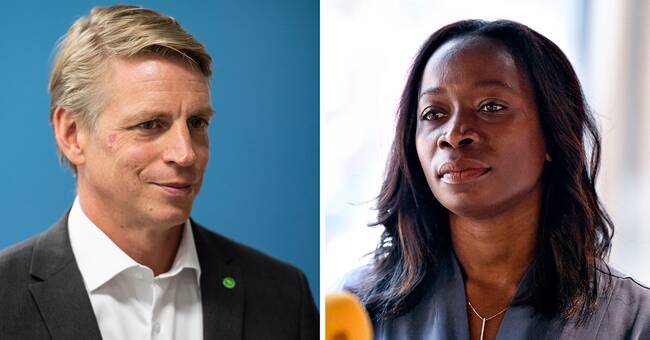SVT / Novus' voter barometer shows minor changes compared to last month.
The Social Democrats seem to be losing something, but the change is within the margin of error.
This also applies to other changes in the voter barometer.
For the two crisis parties, the Liberals and the Green Party, this is bad news.
There are still no signs that these two parties are about to advance in public opinion.
The drop height for MP is non-existent
For the Liberals, the situation is particularly serious.
The party has been under parliamentary blockade in principle for the entire term of office.
On average, the Liberals have reached up to 3.5 percent in the SVT / Novus voter barometer so far during the term of office.
The barrier to the Riksdag is 4 percent.
For the Green Party, the situation is somewhat better, but still crisis-like.
The party averages 4.4 percent in the voter barometer during this term.
In several surveys, the Green Party has also been under the parliamentary blockade.
The drop height downwards is thus practically non-existent.
Divisive discussions about compromises in government, migration policy and in the future a controversial decision on Preem's request to expand the refinery in Lysekil seem to have put the Green Party in a constant state of emergency.
For both of these parties, the term of office can be developed into a thriller.
But also for the prime ministerial candidates.
Can be crucial
If only the Liberals but not the Green Party leaves the Riksdag, Prime Minister Stefan Löfven's chances of winning the next election will increase.
If both parties leave, it is instead the Moderate leader Ulf Kristersson who has the trump card in hand.
Then his opportunities to gather a majority in the Riksdag increase.
The two crisis parties in the Riksdag may be small, but they can thus have a direct decisive effect on the outcome of the election and who gets the opportunity to form a government after the next election.
What chances, then, do the Liberals have of overcoming the parliamentary blockade?
Yes, the 2022 election will be held as planned, there are two years to work on.
It is a long time in politics and we know from experience that opinions can change quickly.
The Christian Democrats were in a deep crisis during the last term of office and were for a long time under the parliamentary barrier in the opinion polls.
Thanks to a strong spurt in the election campaign, however, the party managed to remain in the Riksdag.
Much was about party leader Ebba Busch and her skill in debates and interviews.
Can Nyamko Sabuni accomplish a similar miracle for the Liberals?
No one still knows if she possesses this ability.
Time for a new discussion
The Liberals are also in a more difficult situation due to the cooperation with the Social Democrats.
Many liberals are opposed to the co-operation and as a support party for the Social Democrats, the Liberals will not be able to count on any bourgeois support votes.
Should the Liberals leave the January cooperation well in advance of the next election and clearly point out the M-leader Ulf Kristersson as their prime ministerial candidate, however, the situation may change.
But it is also not an easy maneuver, not least considering that Ulf Kristersson goes further and further in his statements about cooperation with the Sweden Democrats.
Another problem for the Liberals is that the party competes with, above all, the Center Party for roughly the same constituencies.
Is there room in Swedish politics for two social liberal parties?
The question has been asked by, among others, former People's Party leader Bengt Westerberg, who launched the idea of merging the two parties.
Admittedly not a new idea, the issue has been discussed before, but given the failing voter base, perhaps the time is ripe for a new discussion.

